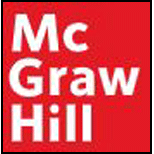
Introduction: A psychological disorder is a clinically significant disturbance that is associated with emotion regulation, behavior, or cognition of an individual. Psychological disorders are usually related to the significant distress in the biological, psychological, or developmental processes repressing the mental functioning. They affect the normal activities of a person on every aspect of life including thoughts, feelings, emotions, behaviors, and outlook.
Answer to Problem 1E
Correct answer: Person K is terrified of elevators. She could be suffering from a phobic disorder. Hence, the correct answer is option (b).
Explanation of Solution
Reason for the correct answers:
Option (b) is given as “phobic disorder”.
A phobic disorder is a type of anxiety disorder that causes a person to feel exaggerate, irrigational fear about a situation, thing, living creature, place, or an activity. As Person K is terrified of elevators, it indicates that Person K is suffering in acrophobia. This is because acrophobia is a type of phobic disorder that is characterize by an extreme or irrigational fear of elevations.
Hence, the correct answer is option (b).
Reasons for the incorrect answers:
Option (a) is given as “obsessive-compulsive disorder”.
Obsessive-compulsive disorder (OCD) is an anxiety disorder characterized by unwanted, uncontrollable and repetitive thoughts, intrusive, and distressing actions. Hence, option (a) is incorrect.
Option (c) is given as “panic disorder”.
A panic disorder is characterized by a feeling of dread, fear, and uncomfortable physical symptoms that reach a peak within minutes. Hence, option (c) is incorrect.
Option (d) is given as “generalized anxiety disorder”.
People with generalized anxiety disorder experience, feel long-term persistent anxiety, fear, and uncontrollable worry. Hence, option (d) is incorrect.
Hence, options (a), (c), and (d) are incorrect.
Person K could be suffering from a phobic disorder.
Want to see more full solutions like this?
Chapter 38 Solutions
UNDERSTANDING PSYCH.-ACCESS >CUSTOM<
- A researcher compares the effectiveness of two forms of psychotherapy for social phobia using an independent-samples t-test. Explain what it would mean for the researcher to commit a Type I error. Explain what it would mean for the researcher to commit a Type II error.arrow_forwardHelllo , according to this topic:Differential Reinforcement, DRA, Create a theise statement?arrow_forwardHhow can social media can facilitate bullying and harassment, which can have severe emotional and psychological consequences for victims.arrow_forward
- how do social media platforms often dictate trends in fashion, music, and lifestyle, significantly shaping consumer behavior.arrow_forwardCan users often present idealized versions of themselves, which can lead to unrealistic comparisons and impact self-esteem?arrow_forwardCan excessive use of social media has been linked to increased levels of anxiety, depression, and loneliness, particularly among younger users?arrow_forward
- How exposure to diverse cultures and ideas broadens one's perspective of the world, yet it can also result in cultural appropriation or homogeneity?arrow_forwardHow to develop a proposal outline with examples on How Social Media Influences Human Behavior.arrow_forwardWhile reading this article can you explain strong point , weaknesses point an future study https://doi.org/10.1126/science.1182238arrow_forward
- What are your thoughts of this article https://doi.org/10.1126/science.1182238arrow_forwardWhile readings this article what does this explain about the people https://doi.org/10.1126/science.1182238arrow_forwardMake a graph based on this data below : based on group A and Group B Group A (Bilingual): Vocabulary Task Response Times (seconds): [1.1, 1.3, 1.2, 1.0, 1.4, 1.3, 1.2, 1.1, 1.0, 1.2] Sentence Construction Task Response Times (seconds): [2.0, 2.1, 1.9, 1.8, 2.2, 2.1, 1.7, 2.0, 1.8, 1.9] Group B (Monolingual): Vocabulary Task Response Times (seconds): [1.5, 1.6, 1.5, 1.4, 1.7, 1.5, 1.8, 1.6, 1.5, 1.6] Sentence Construction Task Response Times (seconds): [2.5, 2.6, 2.5, 2.7, 2.4, 2.6, 2.7, 2.5, 2.5, 2.6] 2. Outcome of the Experiment The outcome showed that bilingual individuals performed better, with faster response times in both vocabulary retrieval and sentence construction tasks compared to monolingual individuals. 3. Descriptive Statistics Group A (Bilingual): Vocabulary Task: Mean: Mean=10(1.1+1.3+1.2+1.0+1.4+1.3+1.2+1.1+1.0+1.2)=1.21s Standard Deviation (SD): SD≈0.11s Sentence Construction Task: Mean: Mean=10(2.0+2.1+1.9+1.8+2.2+2.1+1.7+2.0+1.8+1.9)=1.99s SD:…arrow_forward
 Ciccarelli: Psychology_5 (5th Edition)PsychologyISBN:9780134477961Author:Saundra K. Ciccarelli, J. Noland WhitePublisher:PEARSON
Ciccarelli: Psychology_5 (5th Edition)PsychologyISBN:9780134477961Author:Saundra K. Ciccarelli, J. Noland WhitePublisher:PEARSON Cognitive PsychologyPsychologyISBN:9781337408271Author:Goldstein, E. Bruce.Publisher:Cengage Learning,
Cognitive PsychologyPsychologyISBN:9781337408271Author:Goldstein, E. Bruce.Publisher:Cengage Learning, Introduction to Psychology: Gateways to Mind and ...PsychologyISBN:9781337565691Author:Dennis Coon, John O. Mitterer, Tanya S. MartiniPublisher:Cengage Learning
Introduction to Psychology: Gateways to Mind and ...PsychologyISBN:9781337565691Author:Dennis Coon, John O. Mitterer, Tanya S. MartiniPublisher:Cengage Learning Psychology in Your Life (Second Edition)PsychologyISBN:9780393265156Author:Sarah Grison, Michael GazzanigaPublisher:W. W. Norton & Company
Psychology in Your Life (Second Edition)PsychologyISBN:9780393265156Author:Sarah Grison, Michael GazzanigaPublisher:W. W. Norton & Company Cognitive Psychology: Connecting Mind, Research a...PsychologyISBN:9781285763880Author:E. Bruce GoldsteinPublisher:Cengage Learning
Cognitive Psychology: Connecting Mind, Research a...PsychologyISBN:9781285763880Author:E. Bruce GoldsteinPublisher:Cengage Learning Theories of Personality (MindTap Course List)PsychologyISBN:9781305652958Author:Duane P. Schultz, Sydney Ellen SchultzPublisher:Cengage Learning
Theories of Personality (MindTap Course List)PsychologyISBN:9781305652958Author:Duane P. Schultz, Sydney Ellen SchultzPublisher:Cengage Learning





